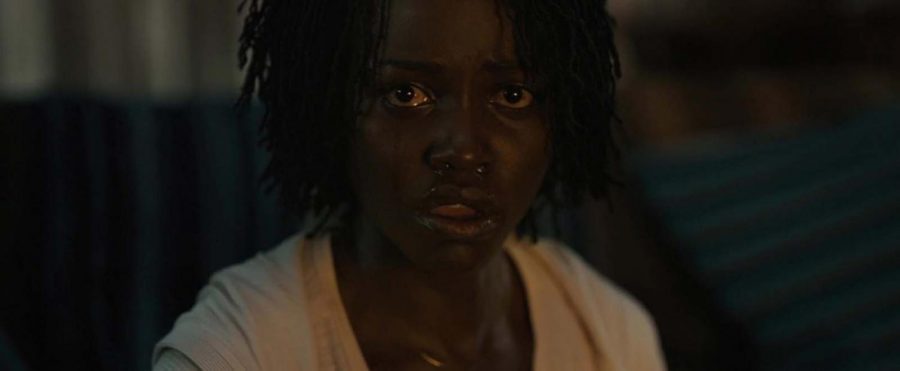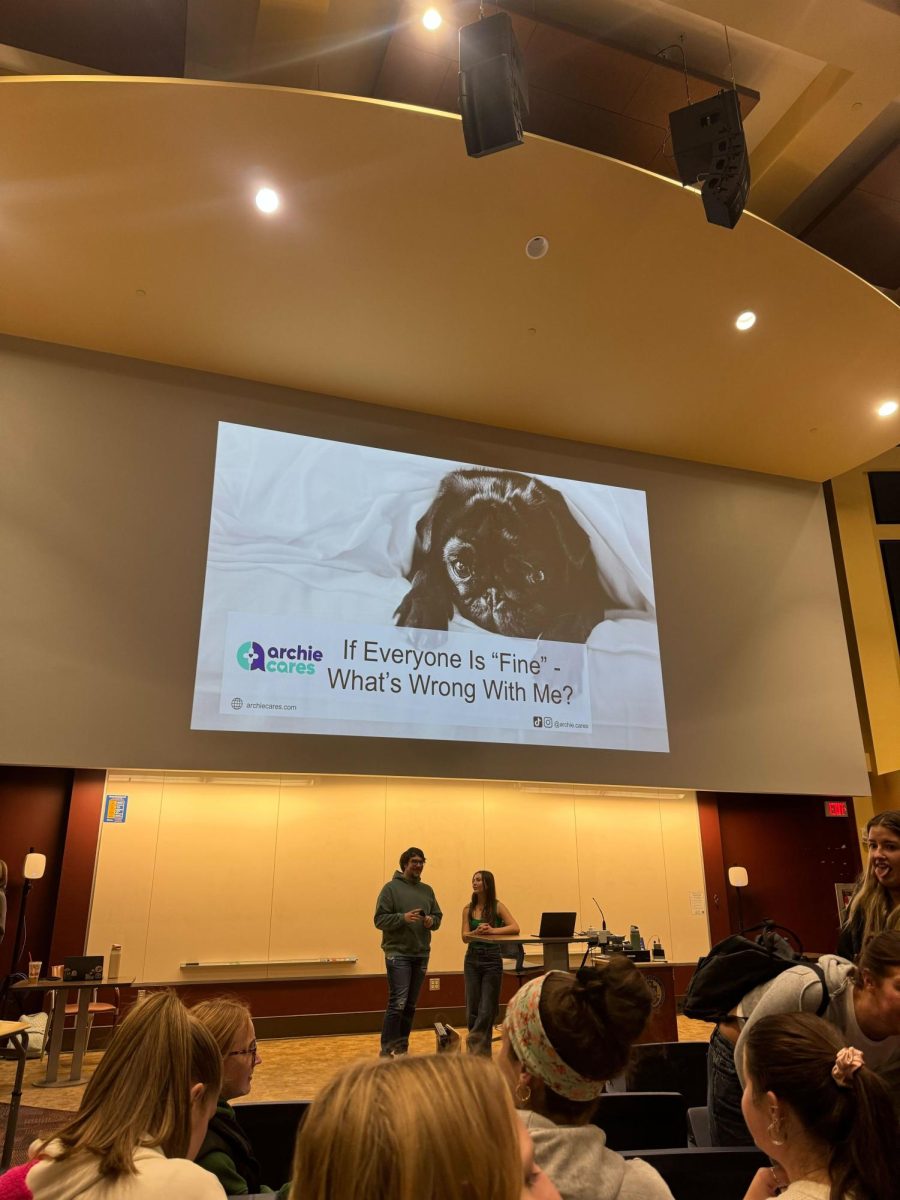Column | Shocked but not horrified at the Academy’s nominations
Universal Pictures, IMDb | TNS
Lupita Nyong’o in “Us.”
January 16, 2020
After I first saw Jordan Peele’s 2019 movie “Us,” I slept with the lights on, terrified a vicious red- jumpsuit-clad doppelgänger of mine was on her way to murder me with a massive pair of gold scissors.
Peele’s first movie, “Get Out,” also a horror movie, received critical acclaim after its release in 2017, nabbing the Academy Award for best original screenplay, as well as nominations for the best director, best actor and best picture categories. Despite this, “Us,” a movie written and directed with just as much panache, was snubbed by the Academy nominations, which were announced on Monday.
This is another in a long line of horror movies getting completely ignored by one of the most prestigious awarding bodies in the world. The most renowned “best picture” category this year includes one nod to the genre, in Korean director’s Bong Joon-ho’s pseudo-horror movie “Parasite,” but neglects more traditional horror, like “Us” and “Midsommar,” directed by Ari Aster. Both received no Academy Award nominations — a grave error.
“Parasite” certainly has the threads of horror throughout. The movie follows a poor family attempting to insert themselves into the lives of a rich family by posing as unrelated professionals and slowly getting hired to work in the other family’s lavish home. The movie is an atypical choice for best picture, both because of the horror genre and because it is entirely in Korean, an odd choice for an organization usually resistant to reading subtitles.
One could make the case that other nominated movies borrow from elements of horror. Todd Phillips’ “Joker,” which received 11 nominations, the most of any film this year, certainly offers a few scares, especially from Joaquin Phoenix’s performance as the titular character. Similarly, so does “Once Upon a Time … in Hollywood,” directed by Quentin Tarantino, which retells the infamous Manson Family murders of the 1970s.
Just like “Parasite,” neither “Joker” nor “Once Upon a Time … in Hollywood” can really be categorized as straight-up horror. Tarantino, despite his disturbing obsession with shots of women’s feet, made more of a Western than a horror movie, despite being about the murders of seven people. I’m still not entirely sure what “Joker” is about, but it definitely is not a horror movie.
Horror is a distinct genre of film, one that is meant to, and often does, illicit a physical reaction from audiences. Hairs stand on end, people jump or maybe the audience goes home to a nightmare about seeing dead people. It seems the Academy likes to favor movies that are more difficult to confine into categories, like “Once Upon a Time … in Hollywood,” and that genre film is perceived as not as artistic because it can be categorized.
Not just any random horror flick should receive a nomination, and it makes sense that a prestigious film institution wouldn’t want to celebrate two hours of blood and guts on screen, but some of the best horror movies this year didn’t need an overabundance of gore on-screen to be both horror movies and well-made movies.
“Midsommar” is an amazingly trippy movie, which follows Dani (Florence Pugh), an American college student who travels to Sweden to attend a midsummer celebration in her friend’s ancestral home. Pugh delivers a phenomenal performance as Dani that left me shaking and afraid. Pugh received the best supporting actress nom from the Academy for Greta Gerwig’s “Little Women,” but was entirely ignored for “Midsommar,” despite exhibiting the same acting chops that brought Amy March to life.
“Midsommar” is Aster’s second critically-acclaimed horror flick, the first being 2018’s “Hereditary,” which stars Toni Collette who, ironically enough, was formerly nominated for best supporting actress for her role in the 1999 M. Night Shyamalan horror movie “The Sixth Sense,” as a grieving mother dealing with the death of both her mother and 13-year-old daughter.
Despite being production company A-24’s highest grossing film of all time, making $79 million on a $10 million budget, “Hereditary,” which offers more of the gruesome elements of traditional horror films than “Midsommar,” was similarly snubbed by the Academy.
Often, horror movies need to get thrown into a more tepid categorization to be deemed more deserving of awards. “Get Out” was touted by some critics to be a “racial thriller,” because it dealt with the topic of race, and 2018’s best picture winner “The Shape of Water,” directed by Guillermo Del Toro, is described as a “romantic dark fantasy.” Horror movies shouldn’t have to drop the word “horror” in order to be taken seriously. Only five movies that could be described as horror were able to break the best picture barrier before “Get Out,” including “Jaws” and “Black Swan.”
Despite past nominations for excellent movies such as “Get Out,” the Academy Awards have always been slow to recognize phenomenal filmmaking in the horror genre. Horror films shouldn’t have to boil themselves down to something-hyphen-thriller categories just to get recognized. Next year, I will be horrified if the Academy doesn’t change its ways.




